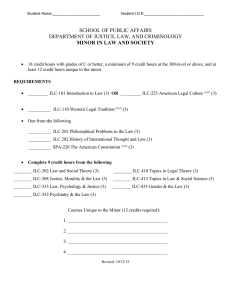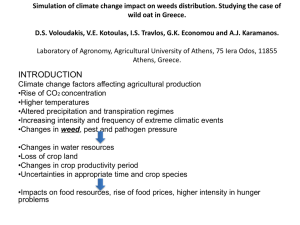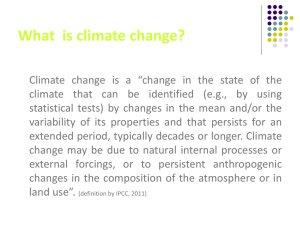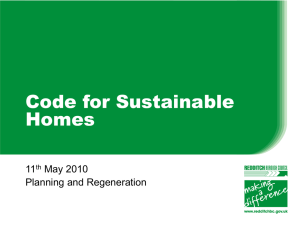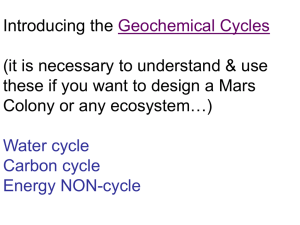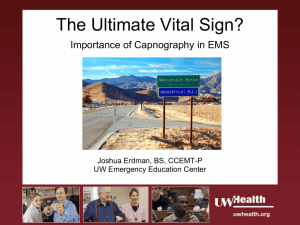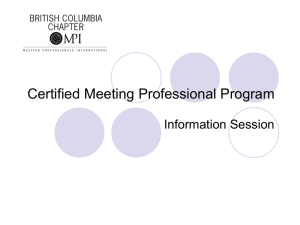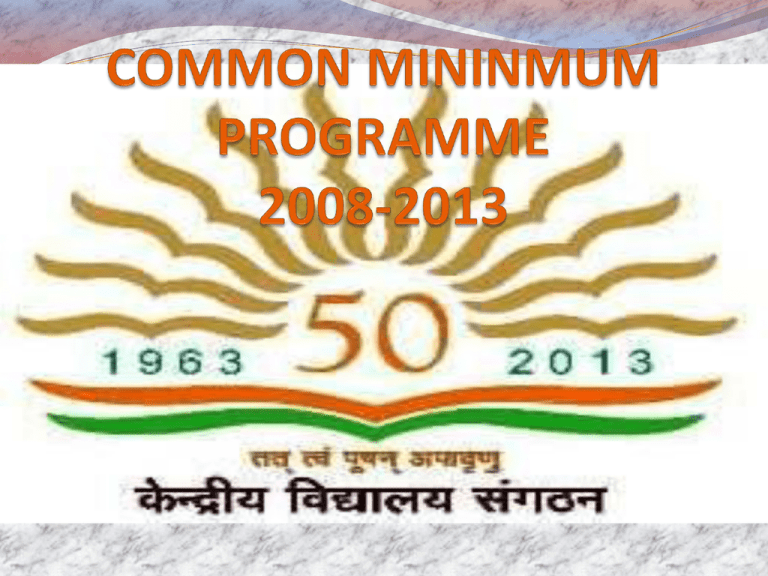
BY
INBAMALAR, HM
KVIIT CHENNAI
The aim of Primary education is to enable our
little ones to grow and turnout to be the
confident young and vibrant adults who are well
equipped to face the global challenges.
The Principles of NCF 2005
The basic principles of NCF 2005 has shifted the stress
from
“Teaching to learning”
“Teacher centered education to child centered
education”
“Rote memorization to understanding and application of
knowledge” and the teacher to play the role of a
facilitator.
Content Layout List
CMP highlights
CMP indicators of quality &
planning matrix
Significance and key messages
Elements of a flexible timetable
Customizing CMP Principles to the
KV context- practice session
HIGHLIGHTS OF CMP
Creating an enabling environment for child Inspired learning
VIDYALAYA LEVEL
CLUSTER LEVEL
CCA , Sports & Games
MINI SPORTS &CCA
COMPETITION
REGIONAL LEVEL
Teaching learning materials,
CAL/ TAL, Worksheets
Health Check up, Educational
Trips.
BAL DIWAS
Community Lunch ,Grand
Parents Day
CUBS & BULBUL UTSAV
FILM SHOWS, Class Library
REWARDS & INCENTIVES
PUBLICATIONS-NEWSLETTER
CLASS MAGAZINES
NEWSLETTER
REWARDS & INCENTIVES
NEWSLETTER
CMP INDICATORS OF QUALITY &
PLANNING MATRIX
1. Infrastructural facilities
2. School management and Parental Support
3. School and classroom environment
4. Curriculum and teaching learning materials
5. Teacher preparation
6. Classroom practices and processes
7. Opportunity time
8. Learners assessment
Well ventilated / Spacious Class Room
Safe drinking water
Class Library
Well equipped Resource Room
2. School management and Parental
support
School Management
Parental support
Academic Support, wherever
Children & Teachers’
possible
Financial Support
TLM development support
Learners Assessment
attendance
Timely availability of
books
3. School & classroom
Environment
Clean and Safe Physical
Environment
Social Interpersonal relationship
4. Curriculum & Teaching
Learning Materials (TLM)
Existing curriculum and its
Coverage ,competency based
materials (Worksheets / reference
books)
Availability of textbooks to children
Library and its use
5. Teacher Preparation
Teacher position(class wise)
Class Teacher/subject teacher system
Difficulties faced during teaching
(academic/administration)
Ability to develop and use TLM
6. Classroom Practices and
Processes
Class room Organization
Seating Arrangement
Pupil - Teacher ratio
Methods of introducing the topic
Teaching learning Process
Assessment procedures
7. Opportunity Time (TLT)
Number of days school opens in a year
Actual number of days, teaching -learning occurs
in year
Number of sections of each class in a school &
Number of teachers in a school
8. Learners’ Assessment, Monitoring
& Supervision
CCE for class I and II
Post assessment feedback by teachers
recording system for CCE III to V (FA1, FA2,
FA3,FA4, SA1,SA2)
Recording procedures
Obtaining feedback from parents regarding
the progress of children.
CONSTRUCTIVIST
LEARNING
No
discrimination
against any child
based on their
sex, caste , creed
and religion .
Protecting child
rights-
involving enquiry,
exploration,
questioning, debates,
application and
reflection
Bilingual
proficiencyintegrating
language across
the curriculum
SIGNIFICANCE
AND KEY
MESSAGES
Flexible
No rote learning
Time table
No corporal
punishment,
Integrated
teachinglearning
▪ ELEMENTS OF A FLEXIBLE
TIMETABLE-guidelines
Maintain CMP guidelines- no. of teachers for a class and no. of periods
allotted for scholastic and co-scholastic areas
Work to balance the load for teachers and students
Schedule time for all CMP activities- Music, cubs & bulbuls, sports, club
activities & film shows
Schedule time by adjusting with art/ work experience periods on
rotation basis
Plan for teacher and class groups on a mutual basis to make it fully
flexible.
Block periods – library, CCA along with Common Music
How do we achieve this?
Planning…………….
the key to reducing tension !!!
Booklets containing activities is
printed for the entire term
All four areas will be tested bimonthly.
Reading cards for languages (III to V)
Question bank for MCQ - EVS (III to V)
Math lab activities (III to V)
sample
FA2.docx
ties
Reading cards for languages (III to V)
FILM SHOWS
A set of 12 – 15 CDs handed over to the
I/C teacher per class.
CDs can be exchanged between the
sections.
Since projector/ TV/ E.classroom is
available, each class can watch in small
groups.
ART & SUPW
Syllabus framed incorporating lessons in
the text
Examples & instructions to carry out the
craft work given in the booklet.
WEBSITE FOR ACADEMIC SUPPORT
Developed Parent support system
Learning objectives for all the lessons of I –V
class are uploaded
CW/ HW and FA2/FA4 activities can also be
accessed on the site
www.kviitchennaiprimary.com
PARENTAL SUPPORT
Parent Representative selected from each
class to act as a CPR .
CPRs meet every 4th Saturday.
School mail group developed with each
student and parent forming part of the
group.
All correspondence to parents only through
email .
PRACTICE ACTIVITY

